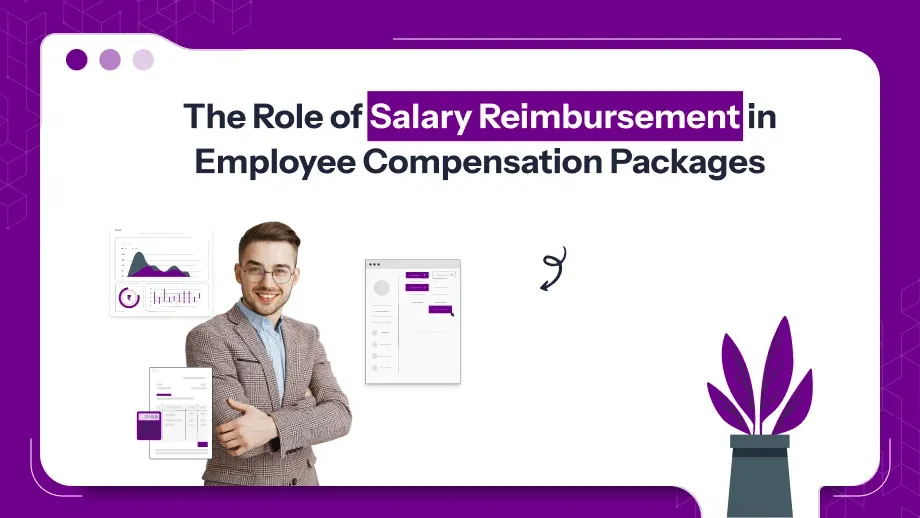
Companies have discovered that they must offer attractive pay packages that attract and maintain high potential workers within the competitive labour market.One one of the key components of these plans is the salary reimbursement. It’s an option that’s often overlooked or ignored, but is essential to employee happiness and productivity. Payroll’s importance as it relates to compensation for employees and payroll compensation in various kinds will be addressed in this post and how companies could use pay-roll reimbursements to improve their human resource processes.
What is Salary Reimbursement?
The term “salary reimbursement” is employed to define how employees receive compensation for the expenses they incur in the course of performing tasks for the company. The costs typically are related to travel, meals and various other operational expenses. In the case of compensating employees for costs they previously paid under the name of the business The method of salary reimbursement differs from normal compensation.
The reimbursement of wages is an essential element of benefits packages in situations where the job requires frequent business trips, off-duty food, or the use of personal resources for the tasks. This helps ensure that employees do not have to cover their expenses from their own pockets.
Salary Reimbursement as a Component of Compensation Packages
1. Enhancing Employee Satisfaction
The reimbursement of expenses related to work is highly favored by employees since they demonstrate that the company respects their work and acknowledges the financial burden associated with certain job demands. If the pay reimbursement in payroll is properly implemented, this program can boost employee motivation and satisfaction, as it gives employees a feeling of appreciation and satisfaction.
2. Encouraging Efficiency and Productivity
When employees are aware that they could recoup part of their labour costs via reimbursement for payroll and reimbursement, they may have a greater incentive to accept jobs that require upfront expenses like meetings or business transportation. A financial reward could increase productivity since employees are less likely to resist taking on additional work, which could need to be paid for from their own pockets.
3. Tax Benefits for Employees
In many countries, the cost of expenses incurred in employment is not tax deductible. This could be a significant advantage for workers. It can lead to the reduction of taxes and allows employees to take advantage of important resources, such as transport or any other piece of equipment and not have to think about costs.
4. Attracting and Retaining Top Talent
The most important factor in attracting high-quality talent could be including the possibility of salary reimbursements as part of an employee’s pay package. The company’s capacity to provide competitive payroll software and guarantee seamless reimbursements using HRMS and payroll software further demonstrates its technical innovation and forward-thinkingness.
Types of Salary Reimbursements in Payroll
1. Travel Reimbursement
A lot of employees have significant costs when they travel for work, that include accommodation, transportation, meals, food, and many other expenditures. In the event of compensation for these costs, it can significantly reduce the burden on employees financially. Policies for reimbursement of expenses for travel usually contain guidelines that specify the types of expenses which are deemed eligible and the necessary evidence in order to claim reimbursement.
2. Meal Reimbursement
If employees must attend meetings that require dining out for business reasons, or while traveling for work, a reimbursement for meals ensures that these costs are covered. Employers can establish a limit on meals or pay only those meals they think are appropriate and necessary for the job.
3. Home Office Reimbursement
With the rising popularity of remote work as well as the increasing use of office equipment in the home are becoming more popular. Employers have the option of providing employees with a reimbursement for purchasing computer equipment such as office furniture and equipment, along with the programs needed for the tasks they have been assigned. This type of payment for payroll services software ensures that employees are equipped with the tools needed to complete their job and ensure that they have a conducive working environment.
4. Miscellaneous Business Expenses
Other costs associated with work, such as workplace equipment, training for professionals, as well as communications costs, can be reimbursed in accordance with the rules for reimbursement of salary. A majority of these expenses will require employees to submit receipts, or some other proof of expense as well as companies may set limits to guarantee that reimbursement requests fall within the limits of a fair budget.
Maximize your earnings with easy salary reimbursement options!
Get reimbursed hassle-free – apply today!
How Payroll Software Can Simplify Salary Reimbursement?
Management of salaries can be a challenge in the HR department, especially at large organizations where employees may submit different kinds of requests for reimbursement. This is the reason why modern technology for payroll as well as software for payroll comes into play.
Streamlining the Reimbursement Process
Payroll software online that is integrated in conjunction with HRMS (Human Resource Management System) assists in reducing and speeding in the process of getting reimbursement. Employees are able to submit claims for reimbursement directly to HRMS, which will then be reviewed and approved by the HR manager. Once the claim is accepted the request will then be handled together with the regular payroll. It ensures that employees receive their money in a timely manner.
Accurate Record-Keeping and Compliance
Payroll software will ensure that exact records are recorded for every transaction related to salary important for tax requirements and internal audits. This software will assist businesses to comply with local tax laws through categorizing paid funds as well as separating the normal salary payments as well as those that are reimbursements. This reduces the chance of errors and ensures that the business is in conformity to the regulations governing payroll.
Real-Time Tracking
Payroll software is also able to provide an immediate monitoring of the reimbursement process for employees and help businesses keep track of the progression of every request. Employees and HR managers are able to glance through the current reimbursements in salary and decide whether or not to accept requests, and track the amount being reimbursed within the specific time. This helps companies keep on top of their budgets. It also gives transparency in the reimbursement process.
Integration with HR tools from other sources
The most efficient HRMS & payroll software for HR accessible across India as well as across the world permits seamless integration with HR tools like time tracking and expense management, and also the application to monitor employees’ productivity. The system is integrated which ensures that all compensation of employees like salary reimbursements are handled in one place. It also reduces the requirement to enter the data manually, is more efficient, improves efficiency and speeds up the entire process.
Best Practices for Managing Salary Reimbursement
In order to have a consistent and successful method of paying employees companies should follow these guidelines:
- Set clear guidelines on reimbursement: Make clear what costs are paid back and what evidence that employees must have to. This will reduce confusion and increase efficiency and transparency.
- Payroll software that automatizes reimbursement: Utilize modern payroll software to streamline the entire process of reimbursement from submission to completion by remittance. This can reduce the chance of mistakes and speeds up the whole process.
- Be sure that you’re conforming to Tax Laws: Regularly review and update your guidelines for compensation in order to ensure they’re up to date with current taxes. This could help you stay clear of potential legal troubles in the future. You should as a precaution, ensure that the company and employees adhere to the laws.
- Engage Employees: Efficaciously Be certain to inform employees regarding the reimbursement policy dates, deadlines and any updates. Clear communication builds confidence and ensures an efficient reimbursement.
Conclusion
Payroll reimbursements play an integral role in the compensation programs that employees are offered and also offer financial assistance to employees who have expenses related to their job. By integrating payroll reimbursement into the best HR payroll software in India and taking advantage of advanced technology to process payroll allows you to streamline reimbursement workflows as well as ensure compliance for employees and improve the satisfaction of employees. Utilizing payroll applications on the internet can also facilitate better tracking and management as well as making it easier for organizations to manage the process of reimbursement effectively.
Although companies continue to adapt to changing workplace settings and workplaces as well as new work environments, salary and compensation are expected to play a major role in the creation of compensation plans that compete with other programs. With clear guidelines along with the suitable tools and software as well as ensuring that the program is in compliance companies can benefit from the advantages from this essential HR process.









